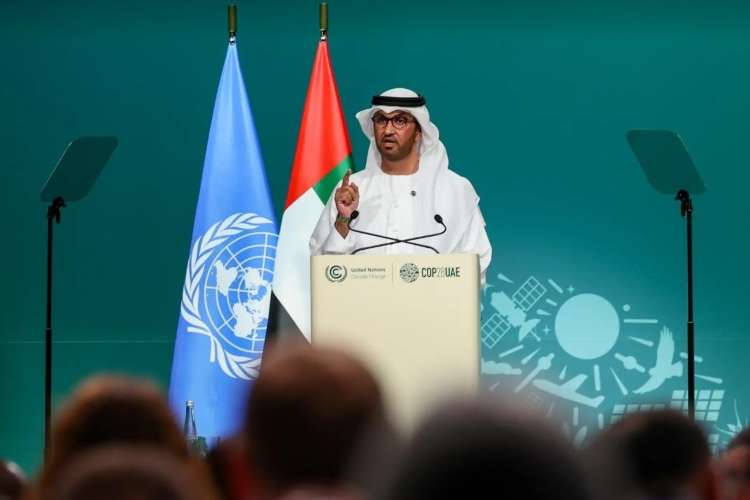
A controversial statement by Sultan Ahmed al-Jaber, the president of the United Nations climate conference, has reignited the controversy over his appointment. The decision to appoint a leader of the fossil fuel industry as president of the United Nations climate conference (COP28) had raised serious concerns about the direction and integrity of the global climate policy.
“There is no science out there, or no scenario out there, that says that the phaseout of fossil fuel is what’s going to achieve 1.5C,” the COP28 president said on Sunday, drawing forceful criticism from across the climate movement and forcing him to come up with an explanation. But the damage was already done.
The appointment of al-Jaber — who also leads the United Arab Emirates’s national oil company — to a key position in a climate change conference presents a conflict of interest. The primary mission of COP28 is to advance global action against climate change, with a significant focus on reducing the world’s reliance on fossil fuels. It was felt that having an individual with deep ties to the fossil fuel sector in a leadership role could lead to biases that favour the industry, potentially undermining the conference’s goals.
READ I Green hydrogen mission: Indian giants vie for pole position
Fossil fuel industry and scientific consensus
The COP28 president’s comments about the lack of scientific consensus on the need to phase out fossil fuels show a lack of commitment in addressing climate change. His close ties to the fossil fuel industry can influence the negotiations and undermine the credibility of any agreements reached.
The fossil fuel industry’s stance on climate change often conflicts with the scientific consensus. While the industry acknowledges the need for environmental stewardship, it frequently advocates for the continued use of fossil fuels, emphasising technologies like carbon capture as solutions. However, many experts and environmental organisations argue that the focus should be on transitioning to renewable energy sources, as they are becoming more cost-effective and are essential for sustainable environmental management.
One common argument from the fossil fuel sector is that renewables are not yet capable of fully replacing fossil fuels. However, this perspective may not fully account for the rapid advancements in renewable technologies. By underestimating the potential of renewables, the industry risks delaying essential shifts towards more sustainable energy systems, which are crucial for mitigating climate change.
While the fossil fuel industry has a role to play in the transition to renewable energy, particularly in areas where alternative technologies are still developing, its reliance on carbon capture and similar technologies is often criticised as being overly optimistic. Such technologies, though promising, are not yet proven at a scale sufficient to counteract current emission levels substantially. The industry’s focus should, therefore, include a more significant commitment to advancing renewable energy sources.
COP28 need unbiased, visionary leadership
The resistance to transformative climate action extends beyond the fossil fuel industry. Various carbon-intensive sectors are reluctant to make changes that could impact their short-term economic interests. This collective resistance presents a major obstacle to global efforts aimed at reducing emissions and transitioning to sustainable practices.
Effective leadership is crucial for the success of global climate initiatives like COP28. Leaders should be free from conflicts of interest and fully committed to the goals of climate change mitigation. The controversy around the leadership of COP28 underscores the need for leaders who can objectively navigate the complex interplay between economic and environmental priorities.
The leadership of COP28, particularly the involvement of the fossil fuel industry, highlights a critical challenge in the fight against climate change: aligning the economic interests of influential industries with the urgent need for environmental sustainability. As the world seeks to address climate change, it is increasingly important to have leaders who are not only knowledgeable but also unbiased and committed to fostering a sustainable future. This involves a concerted effort to transition away from fossil fuel dependency and to embrace renewable energy as a cornerstone of climate policy.
To address the concerns of climate scientists and activists, COP28 organisers should prioritise transparency and accountability throughout the conference process. This includes providing clear and accessible information about the decision-making process, ensuring that all stakeholders have a voice in the negotiations, and holding all participants accountable for their actions. Additionally, it should adopt strong conflict of interest policies to prevent the undue influence of vested interests.
